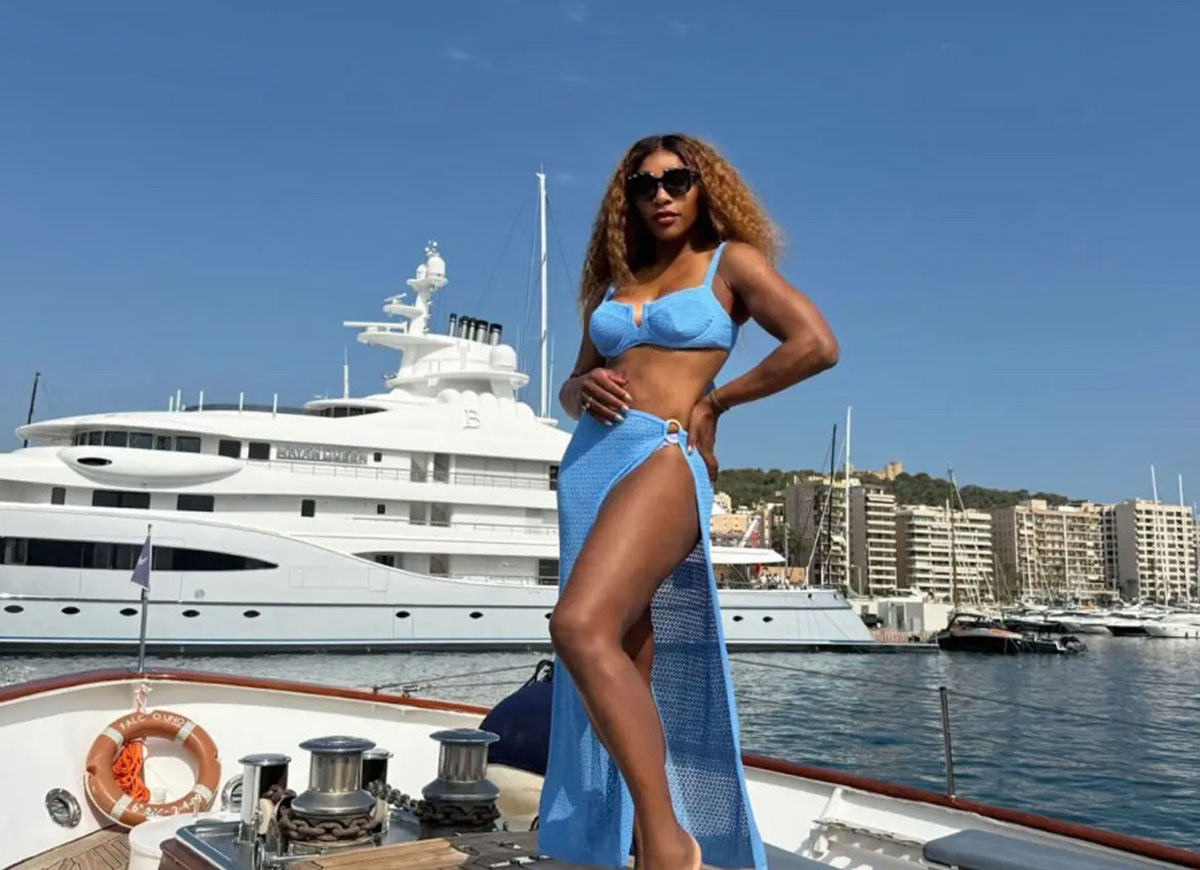Paul Dano Goes Edgy In 'For Ellen'
Indie darling Paul Dano, 28, gives what has been dubbed his best performance yet in Treeless Mountain director So Yong Kim’s minimalist drama For Ellen, alongside Jena Malone (Into the Wild) and Jon Heder (Napoleon Dynamite). In the Sundance favorite, Dano stars as Joby Taylor, a twenty-something rocker who lives a bleak and aimless existence — until he is forced to set aside his musical aspirations to regain custody of his six-year-old daughter Ellen (Shaylena Mandigo), a girl that he barely knows and who is being raised by Margarita Levieva in the role of his estranged wife. Known for his mopey looks and typically benevolent characters, Dano roughens around the edges to embody bad boy Joby in For Ellen.
A New York native and Connecticut transplant, Dano has been acting since he was a child, initially on Broadway and then as Howie Blitzer in L.I.E. at the age of 17 — his first major film role for which he received several awards, including the Stockholm International Film Festival Award for Best Actor. But Dano’s big break was in indie hit Little Miss Sunshine (2006) and Paul Thomas Anderson’s There Will Be Blood (2007), which immediately solidified Dano’s status in the industry. He has since lent his voice to the fantasy adaptation Where the Wild Things Are (2009), and most recently starred in Cowboys & Aliens (2011) and Ruby Sparks (2012) — a romantic comedy featuring Antonio Banderas and Annette Bening, and written by Zoe Kazan, who also co-stars as Dano’s love interest. Despite his busy agenda, Dano continues to work in theater, appearing in Broadway productions such as Inherit the Wind and Ethan Hawke’s directorial debut Things We Want (2007), and has even dabbled in music as lead guitar and vocalist of the four-man band Mook.
In our exclusive interview, Dano reveals how he got into character as Joby in For Ellen — his edgiest role yet. “This was one of my favorite characters that I've gotten to play. It was a real challenge for me,” Dano admits. “Maybe it’s just about spending time with the script and the character, spending time with the type of music he listens to in that world, reading Tommy Lee's book and Slash's book. When you start wearing the clothes, painting your nails black and wearing a necklace, you start feeling different. And I was living in a motel up there — not the one we shot in, but we were in a small town so we were in a motel — and a lot of that became the blueprint of who he was.”
Dano, who got a 104-degree fever during the shoot, also tells us how he used his illness to his advantage. “I quickly tried to shift a couple of things around that made sense with not feeling well," he told Uinterview. "There's a sequence where my character’s at the bar and seems a little messed up, so that was a good scene to do then because, when you're that sick, you feel inebriated in a weird way.”
It is challenging because there's less time, less money and less film stock, and there are often budgetary restrictions when you're making a film in that time. But as an actor, I really like the fast and furious six-day weeks. With a character like this, it's much easier to stick with him rather than have two days off a week and return to yourself [in between]. So I actually enjoy the intimacy of this kind of shoot, and of being able to stay there for three weeks, work as hard as you can, and then let go of it.
I got strep throat during it because we were filming up near the border of Canada in February. It was negative-something degrees, and I was wearing little leather boots and skinny jeans with no jacket and a wife-beater. It was really cold. During lunch breaks, I remember feeling that my feet were sopping wet and cold from the snow. You don't notice it sometimes when you're working. Somehow I got strep throat and that was not fun.
I quickly tried to shift a couple of things around that made sense with not feeling well. There's a sequence where my character’s at the bar and seems a little messed up, so that was a good scene to do then because, when you're that sick, you feel inebriated in a weird way. You don't feel like yourself, so that ended up working out. I think we had to take a day off though, because I had to go get a shot and try to somehow get rid of it. But overall it was not fun. I think you just delude yourself into making it work.
This was one of my favorite characters that I've gotten to play. It was a real challenge for me. I put a lot of work into it and I feel like I got to go somewhere with him. As an actor, and somebody who's trying to learn still each time, I took a lot away from the experience. I was moved by the script and the relationship this guy comes to have with his daughter whom he's never really met. Sometimes I'm not sure what I want people to take away from it. I guess I hope they have an emotional experience while watching it.
I’m more of a creative producer in the sense that, when [director So Yong Kim] and I decided to do the film together, I tried to help as much as I could by (A) getting the film made and (B) getting good actors, sending it to people I knew, and keeping the process intimate but involved. Once we were on set, I was never a producer. I was Joby Taylor for three weeks. I was never thinking as a producer. It was more about being involved with getting the film going and getting others involved.
So is very generous and trusting. I think she saw who Joby was. I had a lot of freedom, which I liked. We were doing long takes and letting the camera roll, so it was not just 30 seconds of popping in and out; it was five minutes where you got to let it live and breathe. It was incredibly fun, and we would talk. I would always want to do another take, but we didn't have a lot of time, so we would talk about it whether there was anything else to try. Then again, she wrote the script and I thought it was great, so a lot of the direction came from the writing. We had a really good collaboration. We're still good friends, so that's always good.
There must be when you have that kind of a gut reaction to something. There's something inside you that empathizes or relates. But, for me, Joby was not somebody who has had child-rearing experience, so you have to make it personal by using your imagination to try to know what it would be like to meet a daughter like that. Most of it was about the time before the shoot, because the film happens in about three days, so you really have to be comfortable in this guy's skin by then, and be able to do the long takes without worrying about the acting. The stuff with Ellen… I knew that if I were him and did all of my prep leading up to meeting her, then once he does everything is going to happen. It’s a mysterious trust in something. Maybe it’s just about spending time with the script and the character, spending time with the type of music he listens to in that world, reading Tommy Lee's book and Slash's book. When you start wearing the clothes, painting your nails black and wearing a necklace, you start feeling different. And I was living in a motel up there — not the one we shot in, but we were in a small town so we were in a motel — and a lot of that became the blueprint of who he was leading up to this relationship.
When I first read the script, I saw the character, so you're kind of chasing that vision a little bit. But I’m also not like this guy at all, so there are certain things that are going to help make you feel different and trigger you. I would say that Joby is the kind of guy who's going to say ‘F**k you’ or something vain, whereas I feel that I'm kind of private. So the right leather jacket made me feel physically different. Same with wearing tight jeans — it makes your crotch feel different, so all of those things help you to transform.
I didn't know Jon but somebody recommended him, so we thought about him and got it to him. He's such a sweet guy and he did a really great job in the film. I don't think he's played this kind of part before. He's a good balance for Joby too, who's quite narcissistic and maybe a bit of a prick even. Jon’s character is very kind and earnest, so those scenes with him in the bar are probably my favorite ones. He's so nice that to be mean to him was really fun. He had some type of innocence going into the film, because he’d never played that part before, and I felt like, ‘Oh, this poor bastard, I'm really such a prick to you.’
It’s great. I think the less you know the better, because it's one of those films that's going to surprise you and you're going to just think: ‘Holy shit, that was awesome.’ It's a fun story to follow. I only have a small part in Looper, but it's a good part. I think [director] Rian Johnson is the real deal. He's just a young guy who's going to make some really good films, so I wanted to work with him. That was pretty much it for me.
RELATED ARTICLES
Get the most-revealing celebrity conversations with the uInterview podcast!






Leave a comment